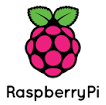 Raspberry Pi foundation
supports our educational initiative since 2017 to teach students and researchers
how to develop sustainable research software, share artifacts, and
automatically optimize and test (autotuning, crowd-tuning and crowd-fuzzing)
realistic workloads in terms of speed, size, energy usage, accuracy and costs
across diverse software and hardware stack
using CK workflow framework and
open optimization repository.
Raspberry Pi foundation
supports our educational initiative since 2017 to teach students and researchers
how to develop sustainable research software, share artifacts, and
automatically optimize and test (autotuning, crowd-tuning and crowd-fuzzing)
realistic workloads in terms of speed, size, energy usage, accuracy and costs
across diverse software and hardware stack
using CK workflow framework and
open optimization repository.
 We've partnered with CodeReef to develop an open platform that can simplify the creation, testing, benchmarking and optimization of complex AI, ML and HPC workflows.
We've partnered with CodeReef to develop an open platform that can simplify the creation, testing, benchmarking and optimization of complex AI, ML and HPC workflows.
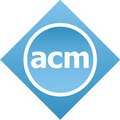 Association for Computing Machinery (ACM) supports
our artifact evaluation initiave for the leading computer systems conferences
and evaluates our Collective Knowledge technology to share artifacts and experimental workflows
as reusable and sustainable components along with reproducible publications.
We are also a part of the ACM workgroup on reproducibility preparing a common policy
on artifact review and badging.
Association for Computing Machinery (ACM) supports
our artifact evaluation initiave for the leading computer systems conferences
and evaluates our Collective Knowledge technology to share artifacts and experimental workflows
as reusable and sustainable components along with reproducible publications.
We are also a part of the ACM workgroup on reproducibility preparing a common policy
on artifact review and badging.
 Microsoft sponsors the non-profit cTuning foundation
to host our public repository of knowledge
in Azure cloud since 2016.
Microsoft sponsors the non-profit cTuning foundation
to host our public repository of knowledge
in Azure cloud since 2016.
 We partnered with ARM
to enchance open-source tools, public optimization repository and scientific methodology
to design more efficient computer systems
for emerging workloads such as deep learning
across the whole SW/HW stack from IoT to HPC
based on Collective Knowledge technology
and ARM's workload automation.
See HiPEAC info (page 17)
for more details about ARM and the cTuning foundation using CK to accelerate computer engineering,
and a demo about connecting CK
and ARM's workload automation, and building a representative set of applications and data sets from ARM TechCon'16.
We partnered with ARM
to enchance open-source tools, public optimization repository and scientific methodology
to design more efficient computer systems
for emerging workloads such as deep learning
across the whole SW/HW stack from IoT to HPC
based on Collective Knowledge technology
and ARM's workload automation.
See HiPEAC info (page 17)
for more details about ARM and the cTuning foundation using CK to accelerate computer engineering,
and a demo about connecting CK
and ARM's workload automation, and building a representative set of applications and data sets from ARM TechCon'16.
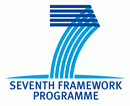
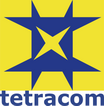 TETRACOM project provided initial funding for our non-profit organization
in 2014-2015 to develop Collective Knowledge Technology.
We successfully completed the project,
released open-source framework,
and won HiPEAC technology transfer award.
TETRACOM project provided initial funding for our non-profit organization
in 2014-2015 to develop Collective Knowledge Technology.
We successfully completed the project,
released open-source framework,
and won HiPEAC technology transfer award.
We regularly help various international projects (MILEPOST, CARP, PAMELA) and assist scientists in crowdsourcing and reproducing experiments, and developing customizable and sustainable research software powered by CK which can now survive in a Cambrian AI/SW/HW chaos or when leading researchers leave!
 Nvidia regularly sponsors awards for the highest ranked artifacts
at our artifact evaluation events since 2014.
Nvidia regularly sponsors awards for the highest ranked artifacts
at our artifact evaluation events since 2014.
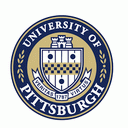 We jointly organize Artifact Evaluation at CGO, PPoPP, PACT and other computer systems conferences since 2015.
We also collaborate on a common methodology for reproducible articles.
We jointly organize Artifact Evaluation at CGO, PPoPP, PACT and other computer systems conferences since 2015.
We also collaborate on a common methodology for reproducible articles.
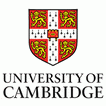 We help several groups in the University of Cambridge
to use Collective Knowledge framework and
develop sustainable research software,
automate and accelerate experimentation,
and reuse artifacts.
For example, portable and reproducible experimental workflow from the
"Software Prefetching for Indirect Memory Accesses" article
by Sam Ainsworth and Timothy M. Jones
received a distinguished artifact award at CGO'17
(see GitHub artifacts,
Paper with AE appendix and CK workflow and
a PDF snapshot of the interactive CK dashboard).
We help several groups in the University of Cambridge
to use Collective Knowledge framework and
develop sustainable research software,
automate and accelerate experimentation,
and reuse artifacts.
For example, portable and reproducible experimental workflow from the
"Software Prefetching for Indirect Memory Accesses" article
by Sam Ainsworth and Timothy M. Jones
received a distinguished artifact award at CGO'17
(see GitHub artifacts,
Paper with AE appendix and CK workflow and
a PDF snapshot of the interactive CK dashboard).
 We help Alastair Donaldson's group
to automate and crowdsource detection of compiler bugs (crowd-fuzzing of traditional, OpenCL and OpenGL compilers)
using combination of CK, CLSmith and other tools.
We help Alastair Donaldson's group
to automate and crowdsource detection of compiler bugs (crowd-fuzzing of traditional, OpenCL and OpenGL compilers)
using combination of CK, CLSmith and other tools.
 We help colleagues from ENS Paris to automate and crowdsource polyhedral optimization using CK.
We help colleagues from ENS Paris to automate and crowdsource polyhedral optimization using CK.
 We assist colleagues from Hartree SuperComputing Center to use CK for customizable and sustainable experimental workflows
and collaboratively optimize realistic workloads across various HPC systems.
We assist colleagues from Hartree SuperComputing Center to use CK for customizable and sustainable experimental workflows
and collaboratively optimize realistic workloads across various HPC systems.
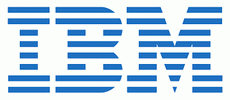 We collaborated with IBM and other partners in 2006-2009 to develop the world's first open-source, machine learning based, self-optimizing
compiler based on cTuning technology
(see IBM press-release,
project page,
journal paper,
long-term vision paper).
More importantly, we developed CK-based workflows
to continue this research with the community even after the end of this project.
We collaborated with IBM and other partners in 2006-2009 to develop the world's first open-source, machine learning based, self-optimizing
compiler based on cTuning technology
(see IBM press-release,
project page,
journal paper,
long-term vision paper).
More importantly, we developed CK-based workflows
to continue this research with the community even after the end of this project.